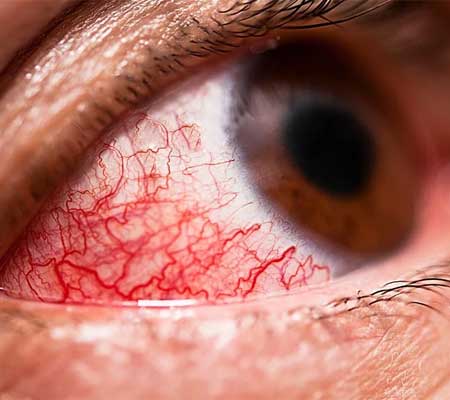Understanding Eye Allergies: Triggers, Symptoms, and Management Strategies
Eye allergies, also known as allergic conjunctivitis, are a common condition affecting millions of people
worldwide. While not usually serious, eye allergies can be uncomfortable and affect daily life.
1.Triggers:
Various allergens can trigger eye allergies, including:
1. Pollen: Pollen from trees, grasses, and weeds is a common trigger, especially during specific seasons.
2. Pet dander: Proteins found in pet dander (skin flakes), saliva, and urine can cause allergic reactions in
susceptible individuals.
3. Dust mites: These microscopic creatures thrive in bedding, upholstery, and carpets, triggering allergies
when their fecal matter and body fragments become airborne.
4. Mold spores: Mold grows in damp areas such as bathrooms, basements, and kitchens, releasing spores that can
trigger allergic reactions.
5. Food-based allergens: Certain foods such as nuts, shellfish, dairy products, and eggs can cause allergic
reactions in some people, which may manifest as eye allergies.
6. Irritants: Smoke, perfume, air pollution, and certain chemicals can exacerbate eye allergy symptoms in some
individuals.

2.Symptoms:
The symptoms of eye allergies can vary in severity and may include:
1. Redness: The whites of the eyes may appear red or bloodshot.
2. Itching: Persistent itching and irritation in and around the eyes are common.
3. Watery eyes: Excessive tearing is a typical response to eye allergies.
4. Swelling: Swelling of the eyelids or the area around the eyes may occur.
5. Burning sensation: The eyes may feel like they are burning or stinging.
6. Sensitivity to light: Bright lights may exacerbate eye allergy symptoms.
7. Blurred vision: In some cases, vision may become temporarily blurred due to eye irritation.
3.Allergy Management Strategies:
Managing eye allergies involves a combination of avoidance strategies, lifestyle modifications, and medical
interventions. Here are some effective management strategies:
 1. Avoid allergens: Identify and try to avoid allergens that trigger your eye allergies. Keep windows closed
during high pollen seasons, use air purifiers to reduce indoor allergens, and be mindful of food triggers if
you have food-based allergies.
1. Avoid allergens: Identify and try to avoid allergens that trigger your eye allergies. Keep windows closed
during high pollen seasons, use air purifiers to reduce indoor allergens, and be mindful of food triggers if
you have food-based allergies.
2. Wear protective eyewear: When outdoors, wear wraparound sunglasses to shield your eyes from pollen, dust,
and other airborne allergens.
3. Use artificial tears: Over-the-counter artificial tear drops can help lubricate and soothe irritated eyes,
providing relief from dryness and itching.
4. Apply cold compresses: Placing a cold compress over closed eyelids can help reduce swelling and alleviate
itching and discomfort.
5. Consult an ophthalmologist: If your eye allergies are severe or persistent, consult an allergist or an
ophthalmologist for further evaluation and management. They may recommend prescription medications and drops.
If you're experiencing persistent or severe symptoms, don't hesitate to consult a healthcare professional for
personalized advice and treatment options.